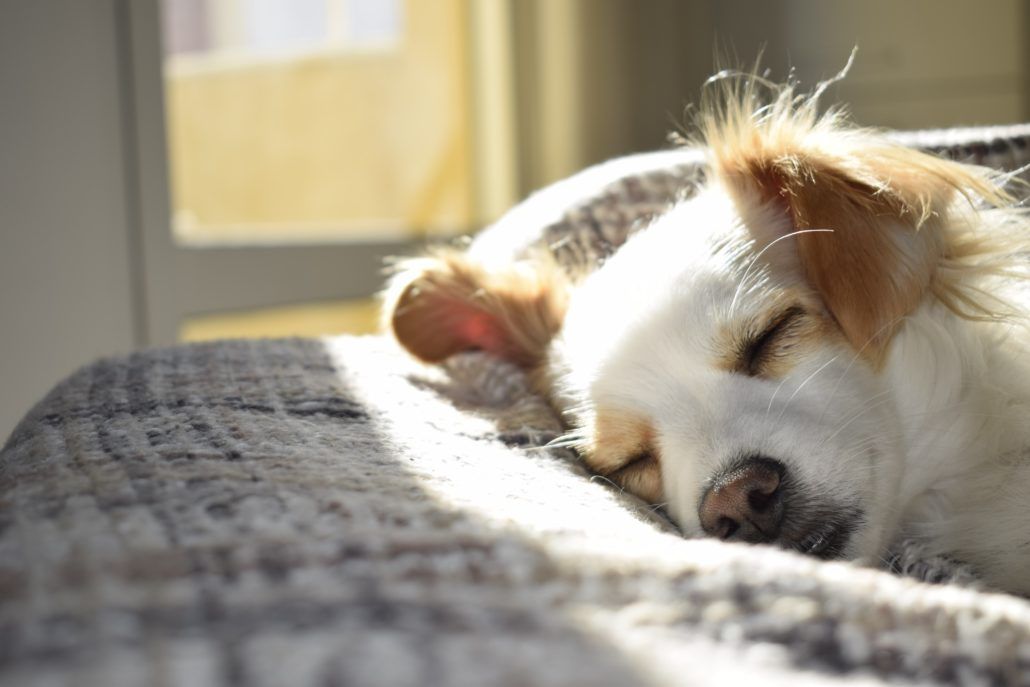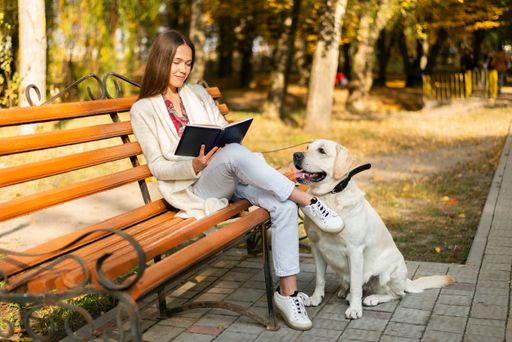When you become a dog parent, there are many things to consider—their food, toys, vet bills, walks and medication. However, not many people think about the way your pup will handle you leaving and spending time home alone. While some dogs love solitude, especially if your home is often hectic, others take your leaving very hard and tend to react with big emotional and physical distress. So, how can you prevent and cure separation anxiety and ensure your dog is happy and healthy all the time? Here are a few tips that can help.

Be subtle
One of the best things you can do for your pup is being very relaxed and subtle with your comings and goings. If you make a scene out of your leaving (give a lot of hugs, pets and baby talk) you can only make your dog’s stress worse. Leaving the TV or radio on can also help your pup feel less alone. You might also want to make your returns uneventful. Be calm, take your pup outside for a potty break and then casually greet them and praise them for being a good dog.

Hand out treats
In order to keep your pup entertained while you’re gone, make sure to give them a treat every time you leave. Something special like a puzzle toy full of treats will not only be a nice treat for the tummy but also for the brain. This will associate your absence with something positive and calm your dog’s anxiety. Make sure to take the toy away once you come back home, though.

Play “stay games”
A pup that suffers from serious anxiety won’t care about treats, so you’ll need to train them to stay home alone. Since dogs are very perceptive, they might start feeling anxious as soon as you start putting on your shoes and coat. In order to prevent that from happening, practice a few games with your dog. You can put on your shoes, return inside and watch some TV or grab your keys and continue with your chores. Once your pup feels less anxious about those actions, you can tell your dog to stay while you go outside for a few seconds. Slowly increase the time you spend outside as your dog gets used to the game and they will feel much more relaxed as you leave for work.

Create a safe space for your dog
Dogs love to have a safe space where they can relax and be left alone. Finding one for your pup can not only make them feel less anxious but also limit their ability to be destructive. What your safe place need is to be loosely confining (like a room with a window and a cozy bed). Fill the space with fun toys for healthy distraction and throw in some dirty laundry to provide your dog with your scent—this can be very calming for your dog.

Keep your pup entertained and well-exercised
Giving your pet plenty of exercise is crucial. Dogs that are tired and happy will be much less stressed when left alone. They will use the time to rest both their body and mind. You can play all sorts of games like fetch or even try agility course-type of exercises. Mentally stimulating games are also great for keeping your pup’s brain busy and too tired to wreak havoc once you’re gone.

Resort to supplements and tools
Sometimes no amount of training and conditioning are enough to prevent anxiety in your dog. In those cases, some vets recommend medication that can be used to treat depression, anxiety and panic disorders. These meds are safe for pets and require a prescription from doctors, but you should still be extra careful with the use of medication. Supplements and some homeopathic treatments can also help. Valerian drops, for instance, can be used to treat dog anxiety or make your training easier. In some cases, people also resort to various anxiety-treating tools. There are pheromone collars, pheromone diffusers and compression shirts that provide comfort and allow your dog to relax while you’re away.
These tips will certainly help your pup survive your absence much better. With proper training and tools, you can make your dog’s life much less stressful and prevent a lot of damage to your property. So, make sure to address your dog’s separation anxiety issues as soon as you can for both of your sakes.



















